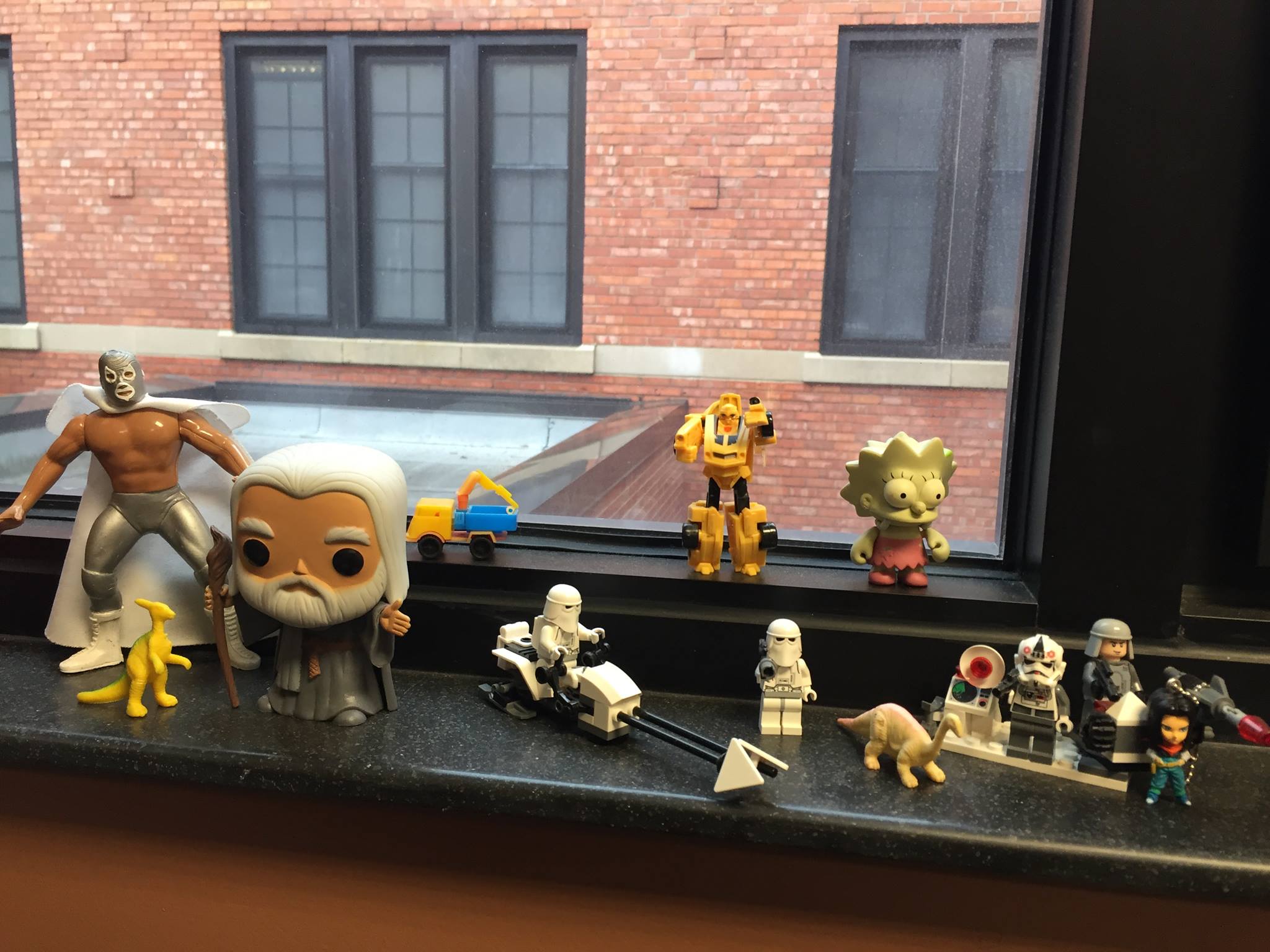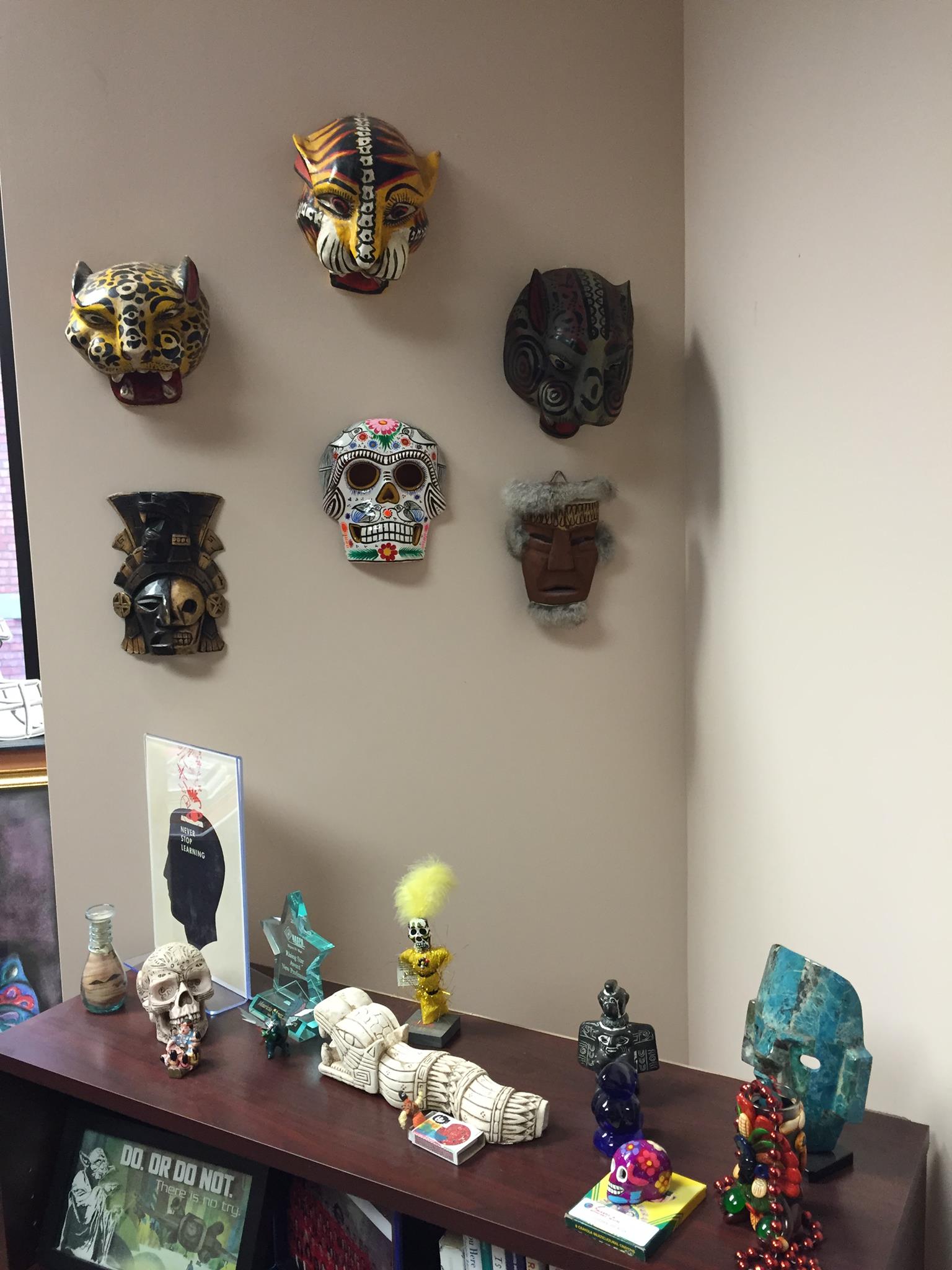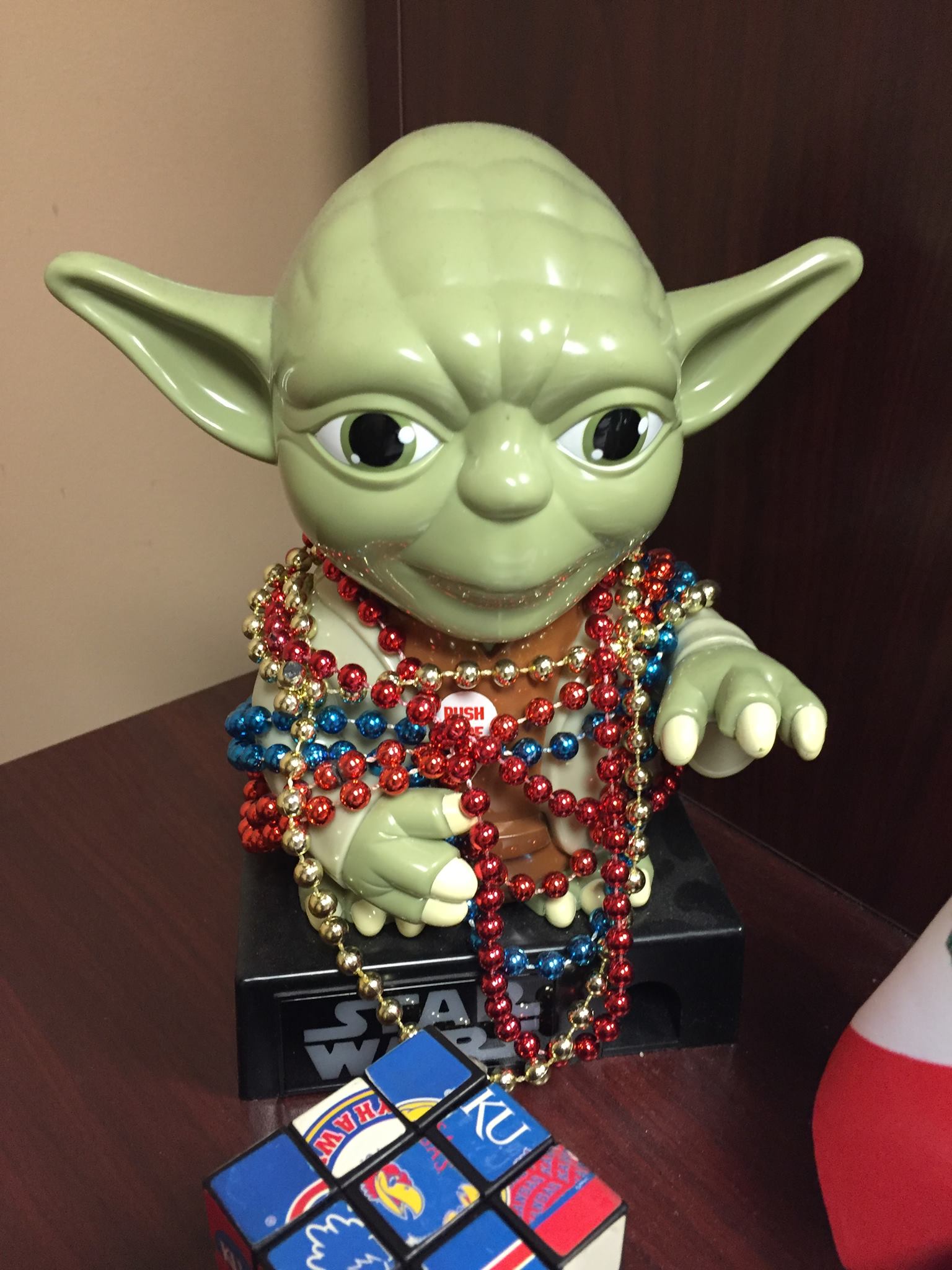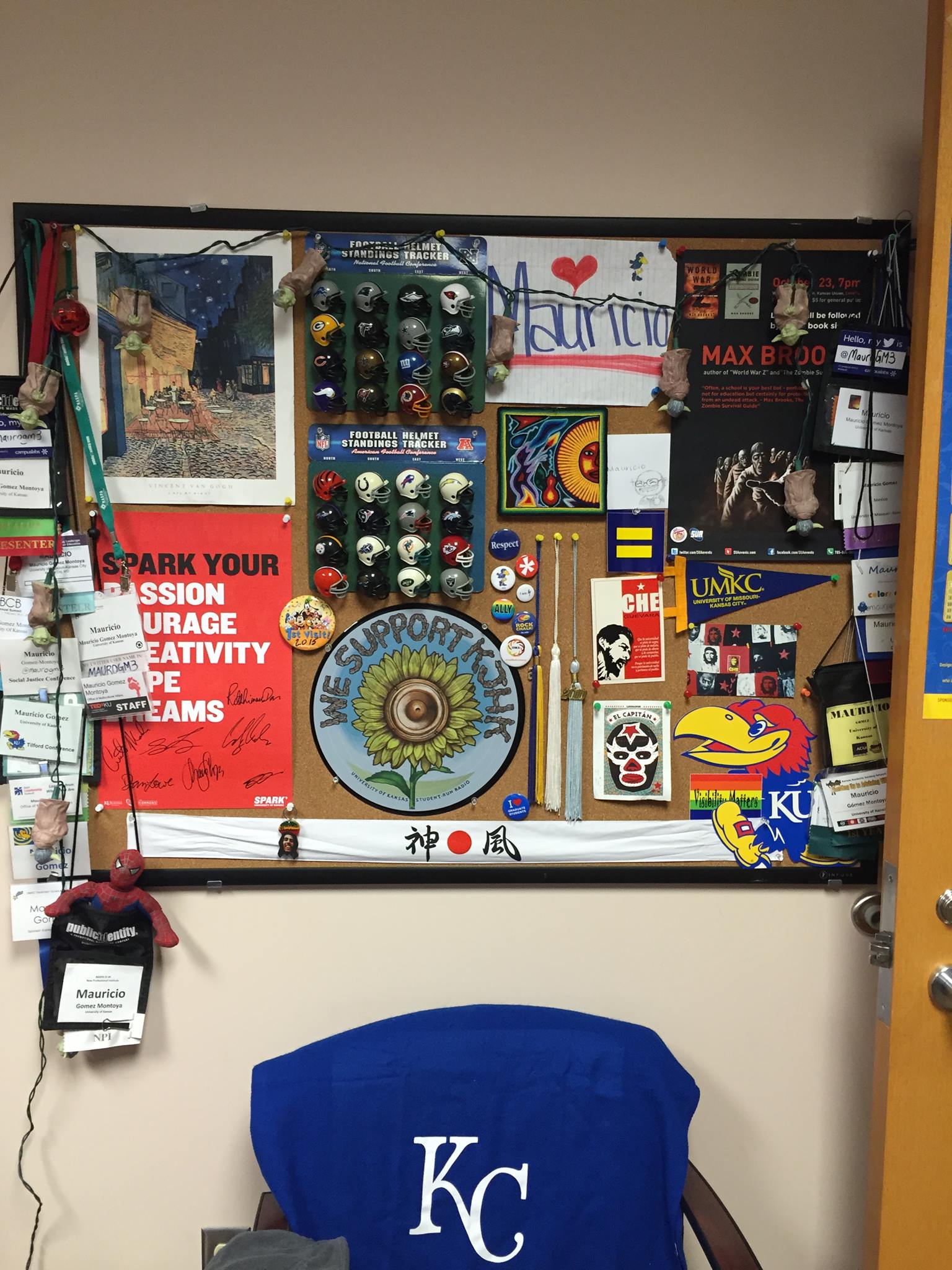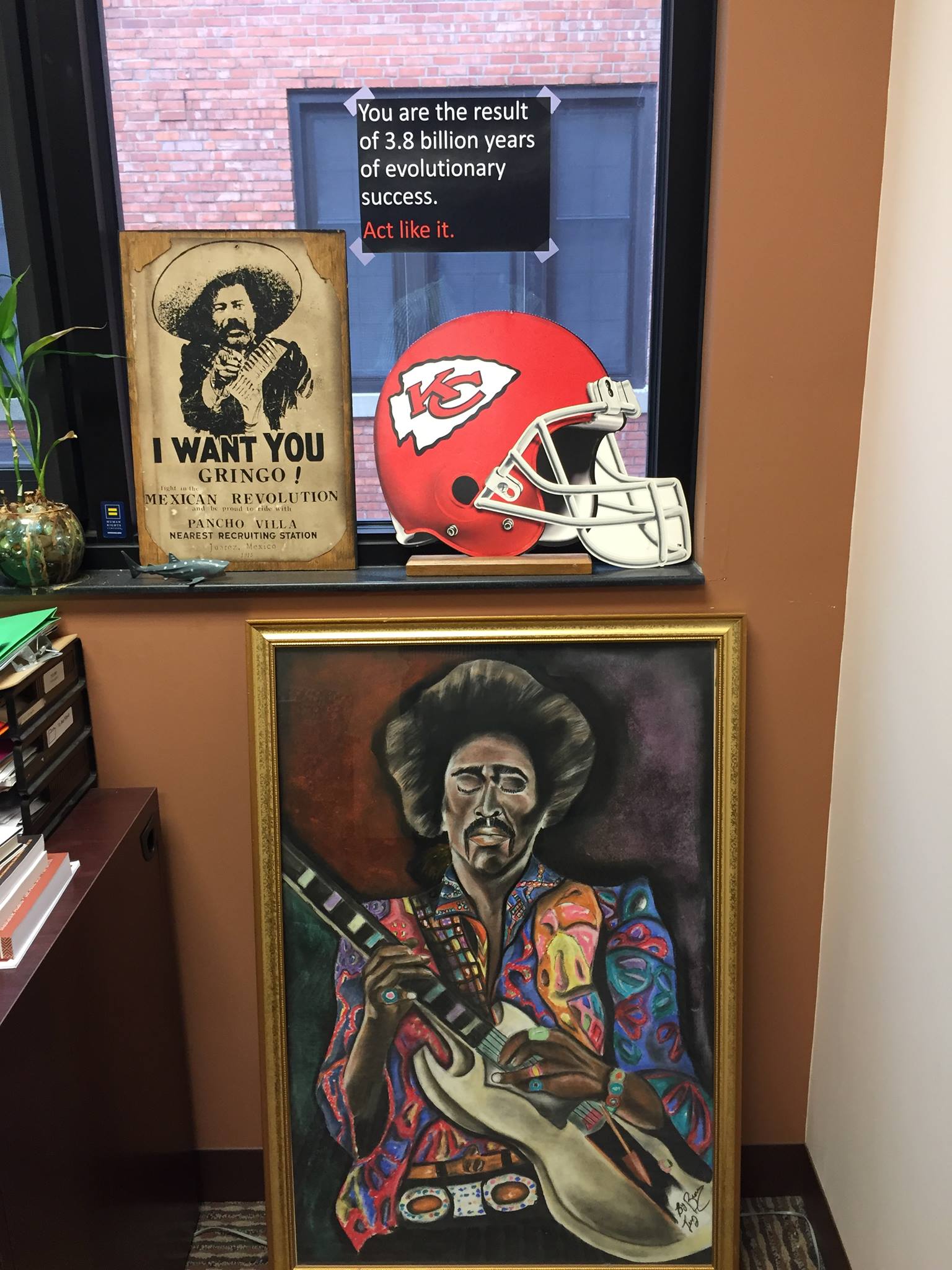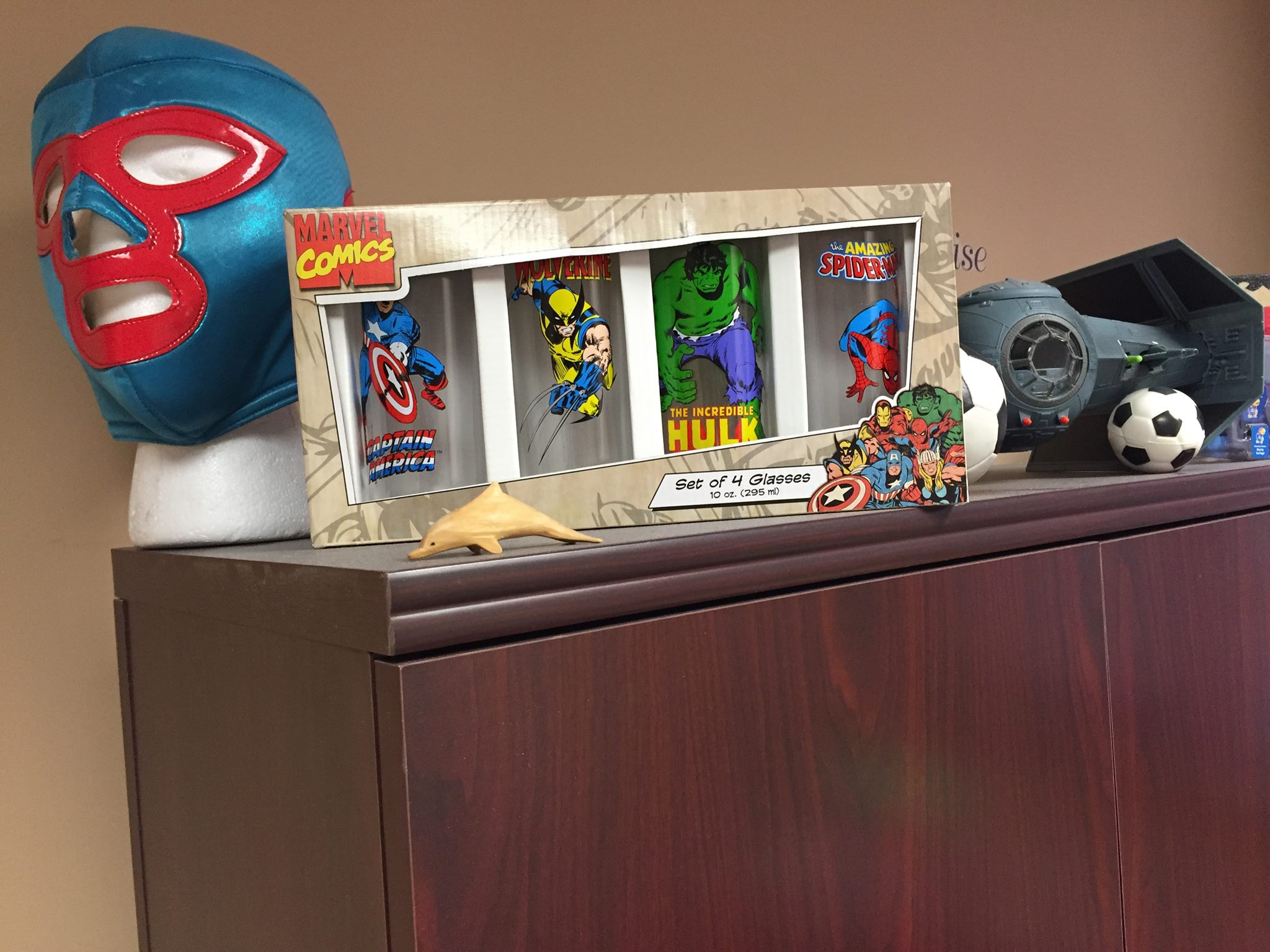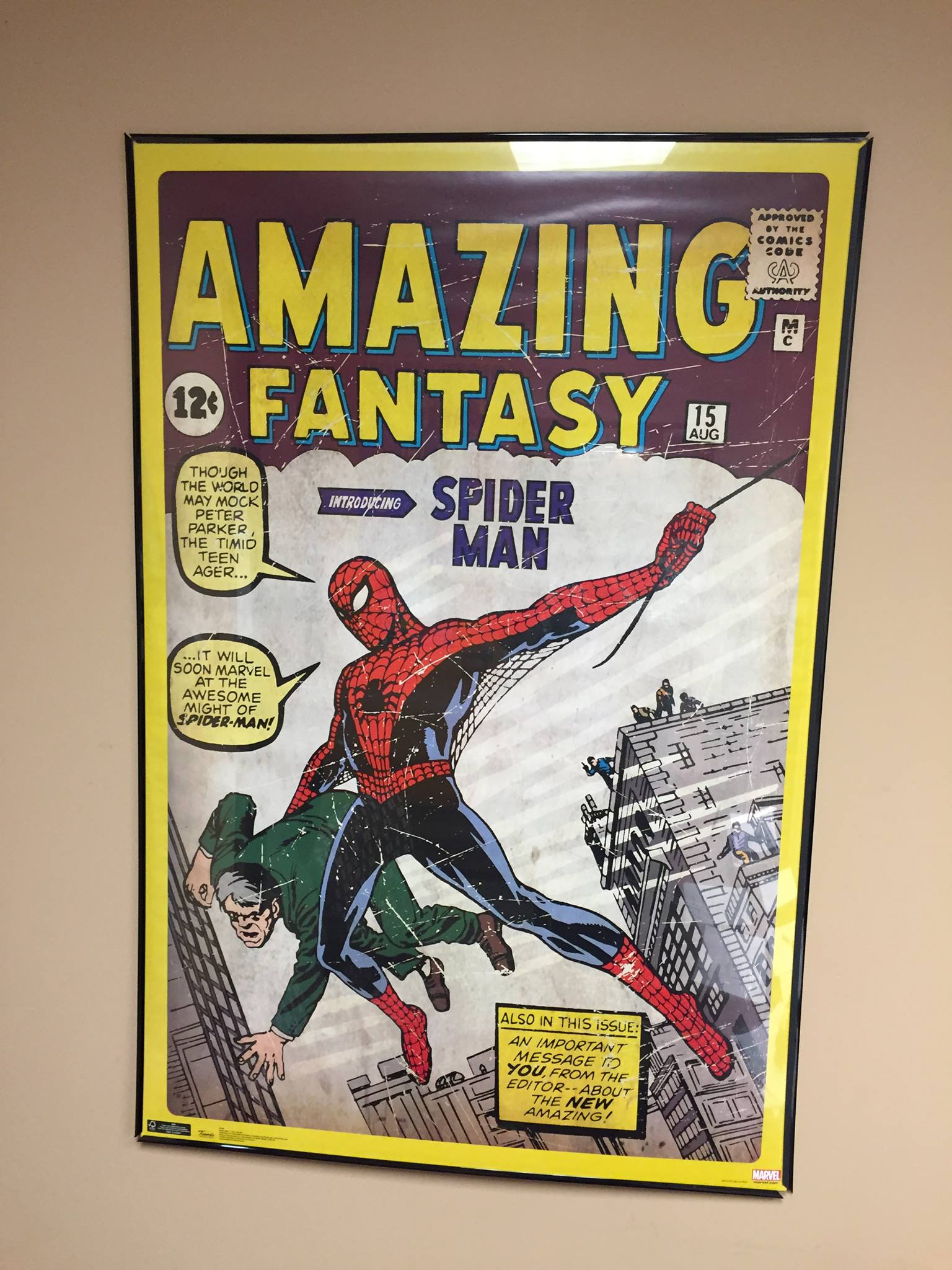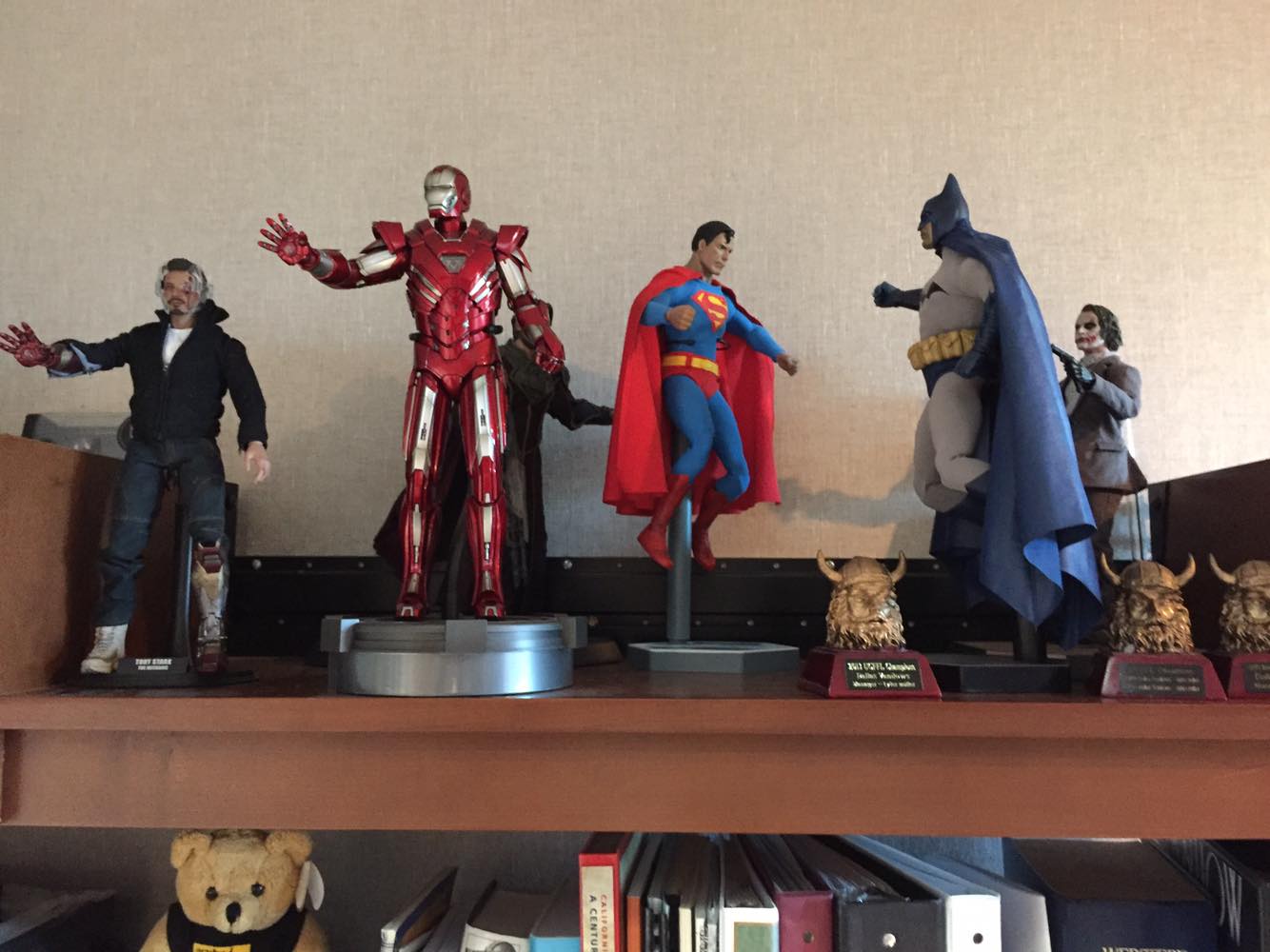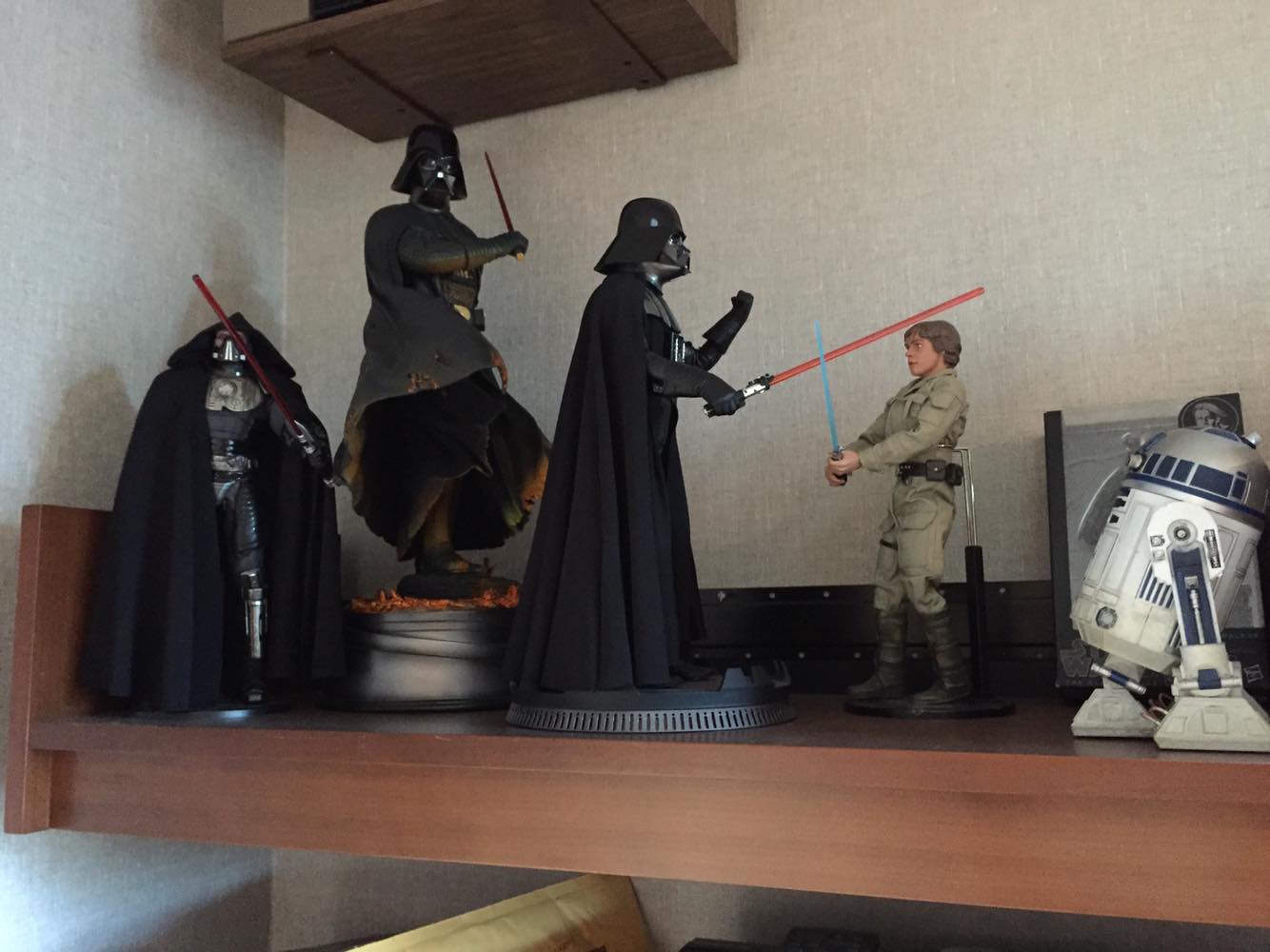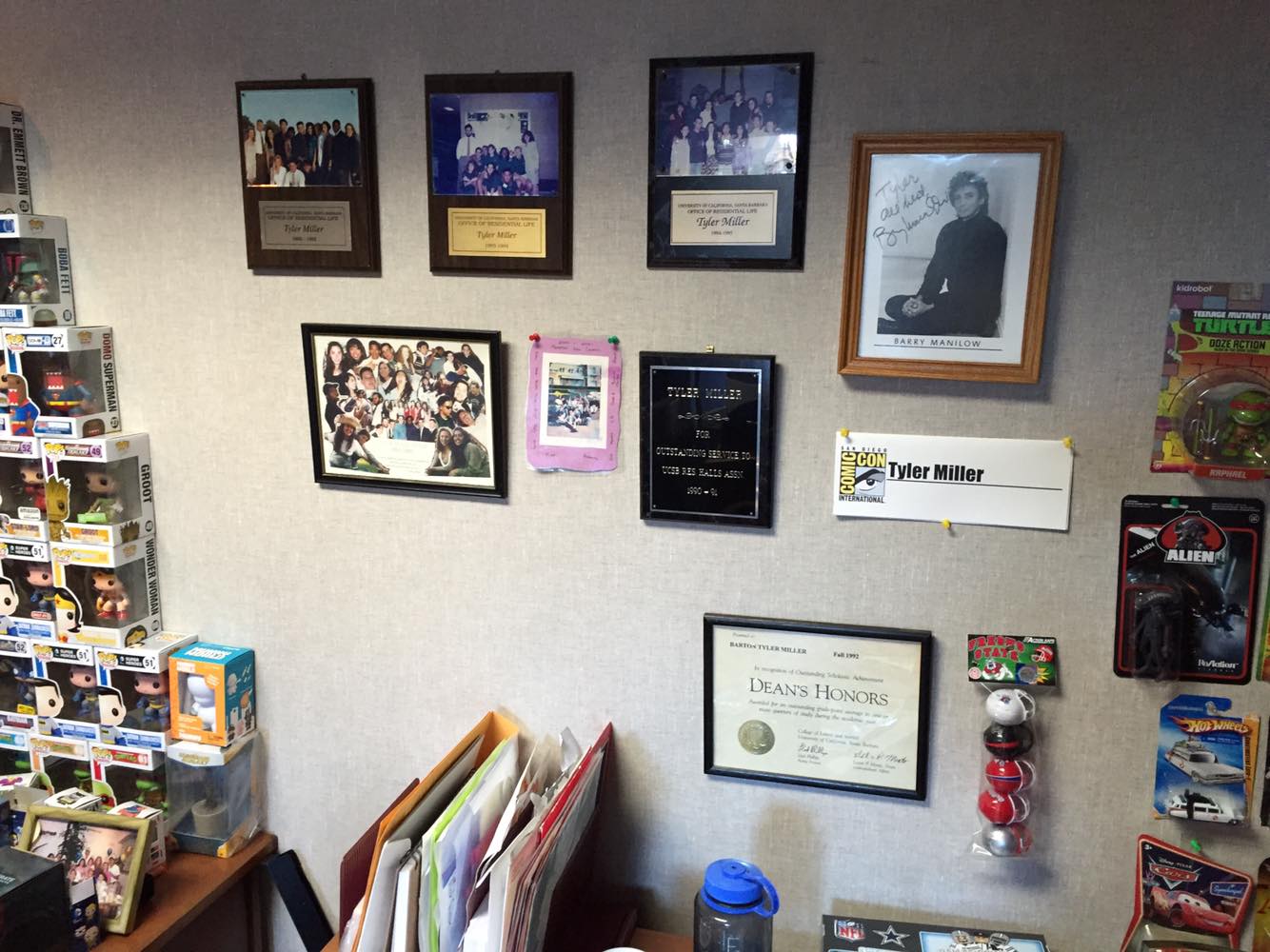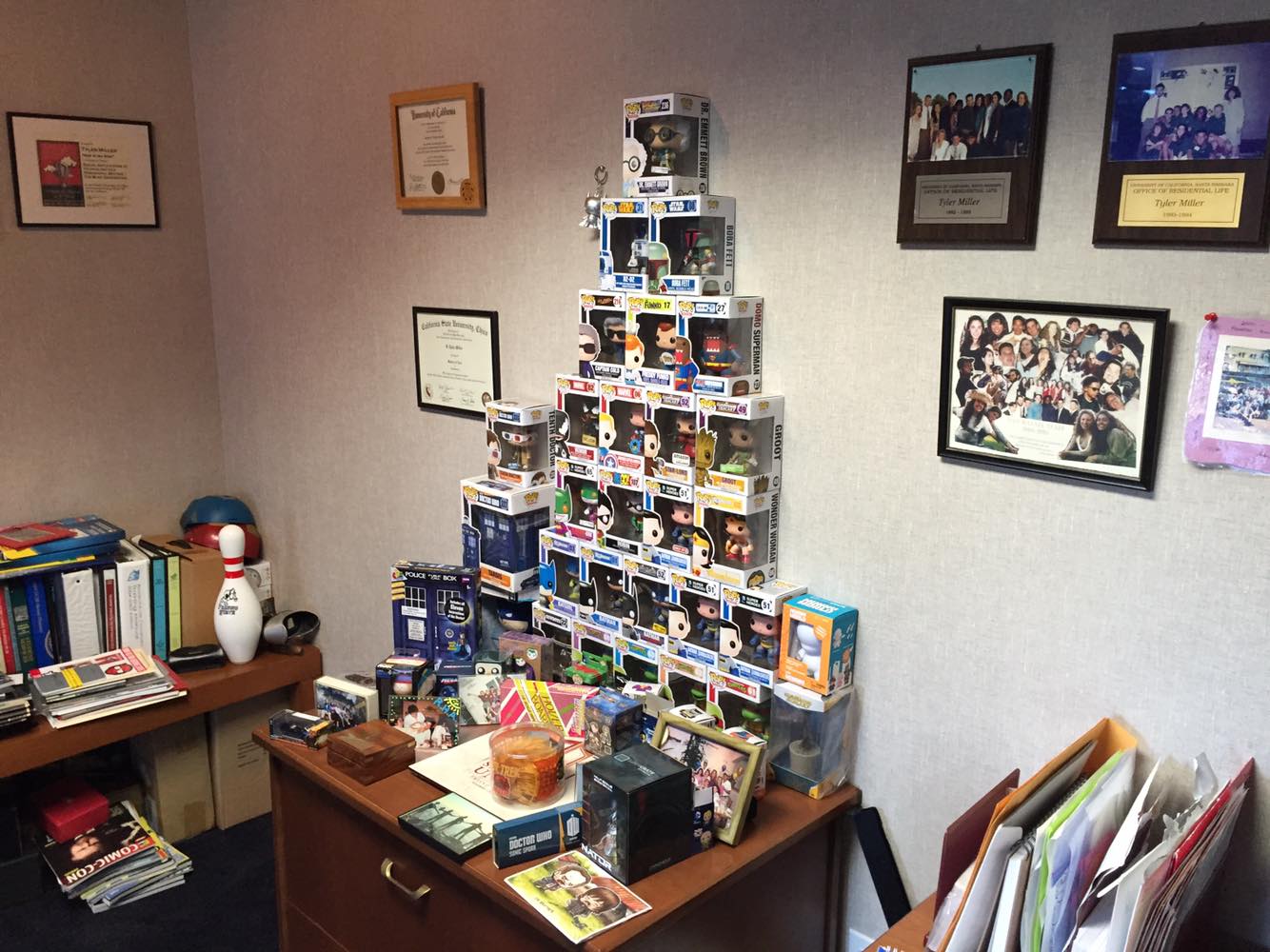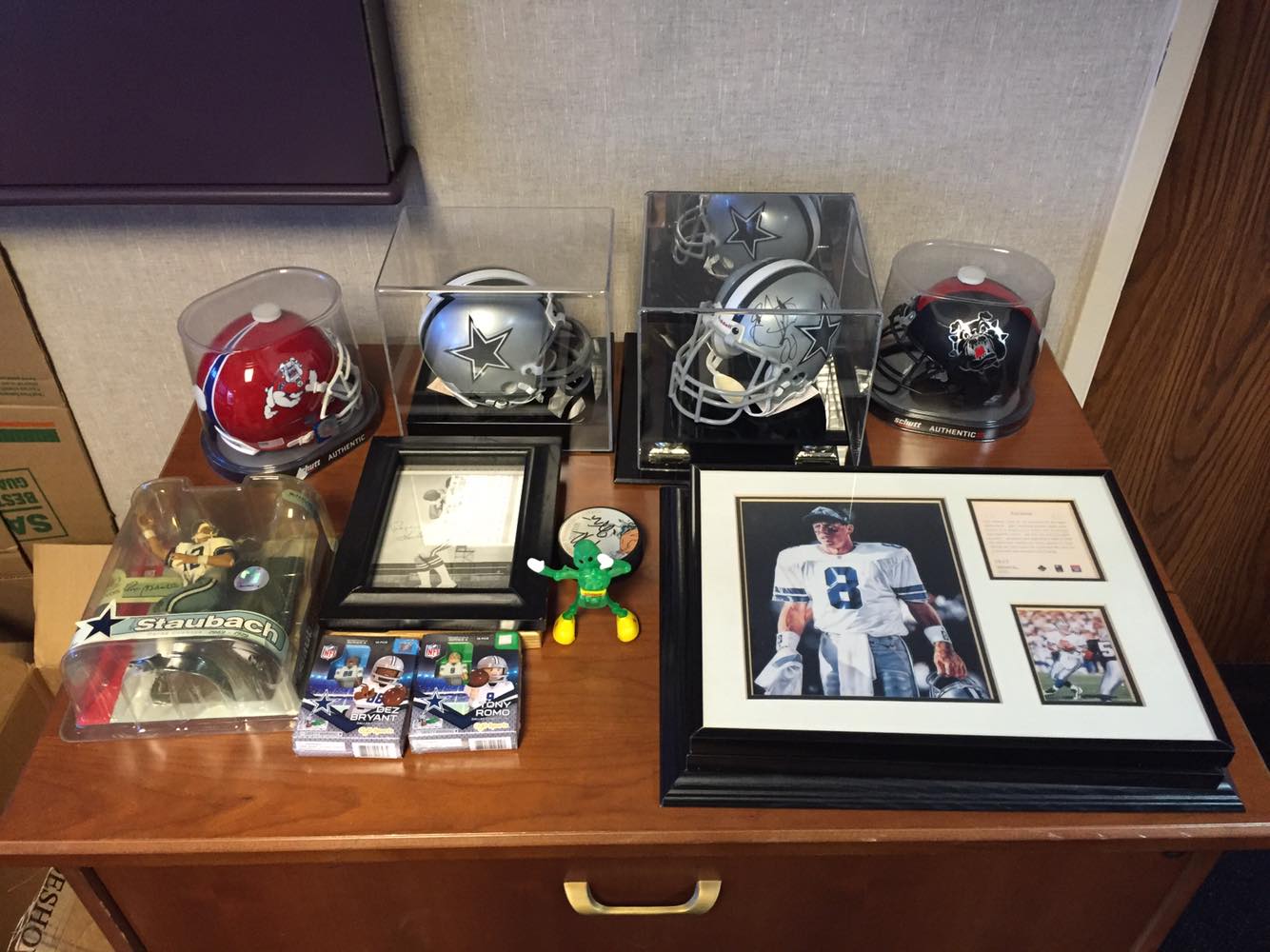Dear Fellow Newbies,
I had a very visceral “Lean In” type of moment with myself a few weeks ago. Having just received a promotion and in the midst of launching head first into conference season, I began to wonder whether or not I should request an update to my business cards. I still had about 300 left with my previous title having only started my job a year ago, but I felt this deep-seeded urge to say to the world “Hey I worked hard, I earned something, and you all should know!” But then that creeping, obnoxious little voice in your head, the same one that tells you that maybe you’re not entitled to an opinion at so-and-so meeting, said loud and clear “Whoa there lady, who do you think you are? Don’t be a show-off. Don’t make noise because you’re already pushing your luck.” But then the spirit of Sheryl Sandberg whispered in my ear and said “Hey stop that! Claim your new title. Get some coffee, too” and all was right with the world again.
That issue that we all face sometimes, feeling “like a fraud” in your job, because you are brand new to a position, or too young, or too inexperienced…maybe that never goes away. One thing is for sure, however, that if we let that voice get too loud, we can keep ourselves from really making a difference in the places that we work. As graduate students and new professionals, we sometimes need to remind ourselves that we are more than capable. We can be great educators and show everyone that we understand the complexities of the field, can apply our training, and really discuss the big issues higher education is facing today.
Sitting in a room of soon-to-be graduates excited about their upcoming post-graduation adventures is a great re-energizer. This time of year is always tough to get through---between the grim weather and the post-holiday lull (and for me, the pacing of a quarter school like Drexel), life seems to be sucked out of you on a daily basis. “You are here for them”, a mantra muttered under one’s breath regularly when speaker contracts, committee meetings, and purchasing card reconciliation bog down the day-to-day. It’s a reminder that we are in a unique position with a heavy responsibility – as mentors, teachers, soundboards for future aspirations—operating in a very strange hybrid world in which our students must navigate intellectual pursuits, identity development, and financial and personal hardship all at the same time. So then how can we become better allies to our students (in all senses of the word)? How do we move the profession forward in order to make sure that 10, 15, 20 years from now we still have the privilege of getting to do this job?
I think it comes down to that educator’s mantra…you know the one, that phrase that’s haunted your subconscious since Student Affairs 101: theory to practice, theory to practice, theory to practice. I refuse to believe that I was the only one that had nightmares about this…”Dear Ed.M. student, we will send your Master's degree in the mail once we receive visual confirmation that the words ‘Theory to Practice’ have been tattooed to your face” Etc., etc. Before the big kid money, when ‘the job search’ was an ever-present cloud looming over your head and you spent your days figuring out if it was actually possible to buy gas using only nickels, at least one chunk of your day--every day in fact--was devoted to theories and readings and readings and theories. Magolda and Chickering and Dewey, oh my! You remember, when you were at the height of paper-writing hysteria, you started wondering things like whether you should get a “Challenge and Support” t-shirt made and hey, maybe faculty would be more generous with your grades if you wore it to class once in a while.
Two years into the field I have slowly come to realize that the kind of developmental and educational psychology foundation we received has been extremely critical in becoming an effective educator, especially when the tough cookie (you know the one) knocks on your door hoping for some direction. When I think back, however, I realize that for whatever reason I didn’t make it a point to do the deep dive with theory as applied to academic advising, the role I had always seen myself taking on later. Student Life, Residential Living…those were always the coursework’s main focuses it seemed, with the nuances of career and academic advising as peripheral inquiries if we had the energy between writing papers and working our assistantships. Or maybe at that point I just lacked the insight (and time) to analyze the intersectionality of student development theories and the specific realm of advising I find myself in today.
After picking up a copy of NACADA’s Academic Advising Approaches (2013) to prepare for a number of academic program interviews, I discovered two new friends that somehow captured in neat(ish) models the spirit of student mentorship I had always strived for: Socratic Advising and Advising as Teaching. Socratic advising involves the use of reflective exercises such as journaling and goal setting. Advisors facilitate lines of questioning that encourage students to think about the logic behind their decision-making. If you’ve ever had a student say that wanted to be an engineer but then share that they were not “a fan of doing math” you’ll see why this is a useful tool. Advising as teaching posits the idea that you are in fact a complete educator, with the ability to provide the student an experience similar to what they would get in a regular classroom setting (and I would dare say, better). You get to know your students and their academic strengths and challenges. Advising sessions have learning goals, action plans, and follow-ups and, for the really ambitious, you might even create an advising syllabus at the beginning of the academic year to really frame the expectations for the relationship and the purpose of your future meetings. Both of these models pull from the many student development theories we’ve learned and can be used to help you impact the student experience in positive ways—which is always the goal at the end of the day, isn’t it? (More on these two models if you happen to be interested in seeing my session ‘Perspectives on Socratic Advising and Advising as Teaching for New Professionals’ taking place at ACPA 2016 on March 7th in Montreal)
All of this comes down to a very important question—So What? Who cares? Is this a valuable thing to think about? Faculty mentors wrote this question all over my culminating thesis drafts and these days I scribble it on feedback for my students’ work regularly. Even as graduate students and new professionals at the bright beginnings of long careers in education, we should take the time right now to probe these questions and think about the “big picture.” Why are student advisors important? Why should we care that institutions place value on our roles? In an era when all types of organizations are making the sprint towards faceless digital processes, where do professionals like us fall? Some think that the every day transactional aspects of our jobs as academic advisors (overrides for course restrictions, degree clearance, etc.) are the only things we do. Proponents of the “cutting the fat” (aka ‘There are too many administrators!’) strategy of revamping higher education think that one day we could all be replaced by cheaper, more efficient “robots” (software) that can give students exactly what they want and the answers they need when they want it. And if that’s really how people feel, those with power and influence anyway, that could spell big trouble for our jobs in the future.
But that’s the problem, isn’t it? The road to helping students develop into ambitious, well-adjusted, and resilient individuals is not about handing over easy answers. Although their words and actions sometimes don’t provide great evidence to the fact, our students are adults that need to learn how to trail blaze. With that said, tossing 18-year olds into the proverbial deep-end isn’t necessarily the best idea either. For many, college is the first opportunity they have ever had to explore new terrain without the every day guidance of guardians or the comfort of familiar communities. To be clear, I’m not advocating for a full-scale return of in loco parentis by any means, but there has to be a balance—a sweet spot—somewhere between being Mother Duck and feeling like you staff a customer service desk. That is where a well-trained, patient, compassionate educator comes in: armed with common sense and a handy network of campus resources, as well as confidence in their ability to use their own education. An advisor has critical influence. The most successful seniors will tell you that a great someone was in their corner, asking the right questions, proofreading applications to graduate school, conducting mock interviews, introducing them to this amazing dean or that brilliant professor, and always having a box of tissues ready for the really rough patches.
“The higher education landscape is changing” is a very buzz-wordy thing to say these days—maybe the more compelling reminders are that budgets are getting cut, people are being laid off, and accreditation bodies (scary) and parents (scarier) are in a constant hovering state. So how do we approach the future of our field, all things considered? At minimum, be comfortable talking about these issues early in your career, be proud of your training, continue to develop it, and advocate for your profession as a critical part of a student’s ability to thrive. With many answers still blurry, one thing at the very least seems crystal clear: if we see ourselves (and allow our directors and deans and provosts to see us) as simply walking and talking degree auditing software, we won’t be here for much longer. That scares the heck out of me because I have a fantastic job working with some of the smartest and most daring young people I have ever met. Not to mention, I also really dig my new business cards.
Sincerely,
Also Still a Newb





